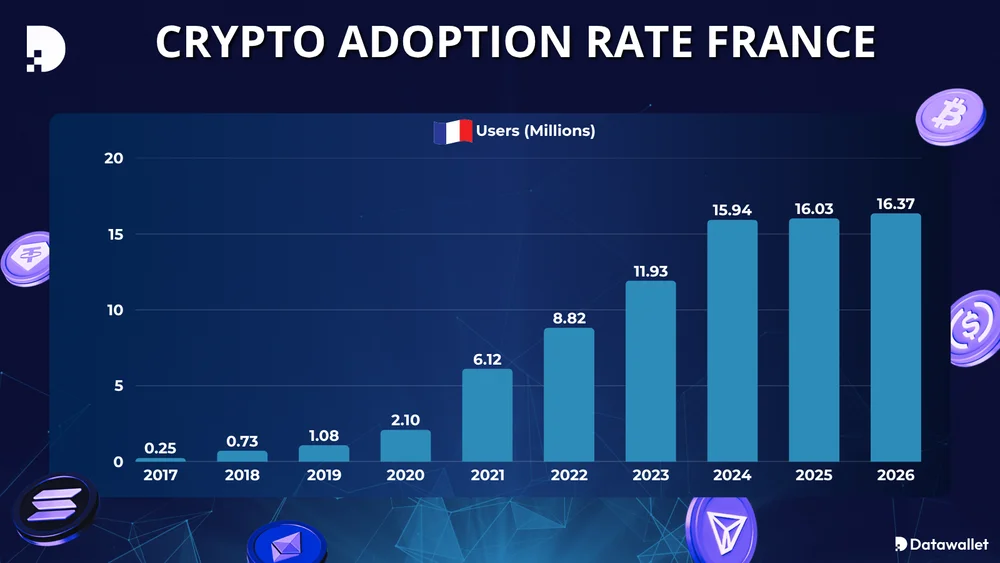Understanding the Grace Amount
While you enjoy exemption for annual digital currency value of €305 and below, the need to clarify this seemingly simple statement is critical.
France offers this duty-free amount on your total virtual currency disposal value. This disposal value is defined as your total annual selling price in euros and not just your gains. It is key to understand that your profit is the subtraction of your purchase price from your selling price.
Essentially, purchasing Bitcoins at €200 and selling for €350 automatically disqualifies you from this rebate. Though your gain of €150 is less than the €350 threshold, it still doesn’t make you free of government obligation, as the law considers your selling price and not your gain.
But say you bought Bitcoin for €50 and sold it for €300, you would have qualified for the tax exemption. Though you made a €250 profit, your total selling price is still less than the grace level.
Hence, it is important to take cognizance of this distinction, as this can be the difference between successfully taking advantage of this fiscal benevolence.

How the Calculation Actually Works
To further simplify this peculiarity, here are some real-world examples that make it even clearer.
- Scenario 1: When your total value is less than the €305 mark, call it "the sweet spot." Say you purchased Ethereum at €150 in March and sold it in May for €280. Therefore, your total value is €280, which is below the line, and your profit €130. Consequently, you qualify for this rebate, and your €130 gain comes with no payment to the government.
- Scenario 2: Here, your total value is above the threshold. You bought Bitcoin in February for €200 and sold it in June for €350. This yields a profit of €150 and a total value of €350, which is above the grace range and therefore disqualifies you from exemption from duties. This means your gains of €150 will be taxed, depending on the option you choose, either the 30% flat rate or the 0-45% bracket-based system.
These two scenarios show the general possibilities that exist in the present fiscal system in the republic, where you can take advantage of its threshold within which no fiscal obligation arises or be held to one of the two virtual currency obligation choices.

The All-or-Nothing Nature: Understanding the Cliff Effect
Here is another rule to consider, which indicates an all-or-nothing stance on all transfers or selling value within a household for an entire year. What this means is that if your annual household transaction exceeds the line by just €1, then you are disqualified from the allowance before owing the state for that year.
The implication of this is that your strategic disposition to annual transactions must be one of critical monitoring. Tracking your transactions throughout the year to find that your next sales might take you above the threshold requires being strategic to remain within the allowance limit.
For instance, if your total sales as of November are €290, which made you €70 profit, but you are considering selling an additional €50 worth in December, with total sales of €340. Here, it will be strategic to wait till January before making the sales to remain within the allowance and therefore owe nothing for that year.
Ultimately, timing matters, and splitting strategies where large transactions can be split across different fiscal years can be very beneficial.
What Counts Toward the Limit
When considering an evaluation for all transactions, it is necessary to understand what counts towards the €305 threshold and what is not included. The table below shows a list of what the nation considers as your disposal and what is excluded.
Consider this table critically before concluding your evaluations for all your annual virtual coin earnings.
Tracking Your Annual Limit: The Essential System
Knowing what is included and excluded from the tax allowance limit is just one part of a holistic financial strategy. Another essential part of your strategy should include an annual limit tracking system.
Beyond just keeping records, this helps you to calculate and effectively monitor all of your virtual cash trades to know when you are about to cross that limit. Ideally, this system should include some essential records for compliance.
- Standard information, including transaction time and date, euro value during the disposal, amount, running cumulative total for the year, and the prevalent exchange rate, should be recorded.
- Basic tech solutions like Microsoft Excel or Google Sheets with relevant custom formulas for calculation are usually effective for this purpose. Take a look at the table below for a sample tracking system format.
- Multi-currency: It is also important to note that the grace quantity applies to all your combined disposals across different virtual asset types in your portfolio
When it comes to monitoring virtual cash alienations and staying within the country’s €305 threshold, precision and documentation are everything. That’s where 8lends makes a difference. As a global governance, risk, and compliance (GRC) platform, 8lends helps individuals and organizations automate compliance tracking, maintain audit-ready documentation, and ensure full alignment with fiscal regulations.
With 8lends’ customizable compliance workflows, tracking your virtual coin alienations and staying ahead of French reporting requirements becomes effortless — even when you’re juggling multiple wallets and transactions.
Common Misconceptions That Cost Money
While the €305 exemption rules are it is inevitable to run into some misconceptions often peddled by less knowledgeable individuals. You can also fall victim to such myths if not abreast of the current virtual cash duties legislation in France. Here is a list of these most common myths and their countering realities.
- Myth 1: "Only profits fall under the limit." All of your transaction sales value falls under this line.
- Myth 2: "You only have to pay the excess value if you exceed the limit €1." Reality again is exceeding the maximum by even €1 renders all your earnings subject to government debt.
- Myth 3: "Different coins are treated differently under the allowance." The fact is that the grace allowance applies to all your combined assets, regardless of currency.
- Myth 4: "You are exempted from any obligation to declare your transactions once they are below the allowance." You still need to declare your total value despite falling within the allowance.
- Myth 5: “Couples operating separate accounts are treated as a single household with the same allowance as an individual." Interestingly, couples with different accounts are treated separately, giving them a combined €610 yearly threshold.
- Myth 6: "Having foreign exchanges as a French resident excludes you from the allowance." This is not true. Though you will have to fulfill the Form 3916-bis reporting requirement for foreign wallets, the €305 still applies.
It is also important to note that the €305 exemption rule generally benefits the casual investor. These include long holders, infrequent traders, and individuals with virtual money as a secondary source of income. Professional investors often have the BNC regimen, which has different rules and different beneficial considerations.
Conclusion
In the end, France’s profit rebate offers a unique opportunity that is not viable in other European countries for systematic and strategic crypto investors. What’s more, is that it goes beyond just a tax break and provides a simple but effective way to encourage casual investors in partaking in the new financial shift from fiat to virtual money.
Nevertheless, critical to any successful crypto investment strategies in the nation is the understanding of the necessary fiscal laws and how they apply to different individuals and situations. Failure to understand nuanced rules might be where the lines are drawn between making savings and wrecking financial decisions. Ultimately, a comprehensive system that helps you track, calculate, and indicate your threshold proximity for all year-round combined values will greatly assist in helping you access France’s tax benefits.
France’s €305 profit rebate may be simple on paper, but in practice, success depends on clarity, timing, and proper record-keeping. 8lends empowers you to stay compliant through intuitive, data-driven GRC tools that take the guesswork out of monitoring and documentation – so your crypto strategy remains clean, compliant, and optimized for growth.








